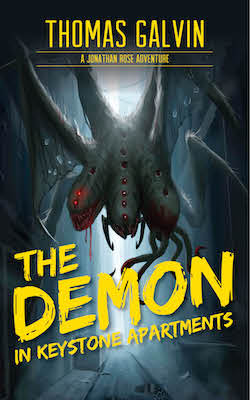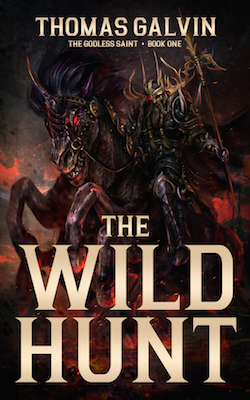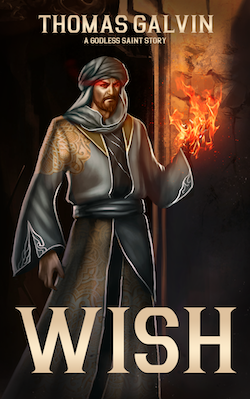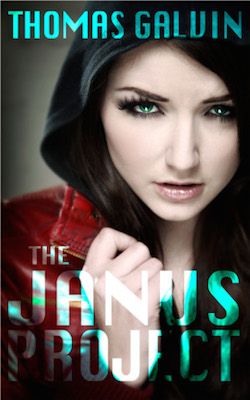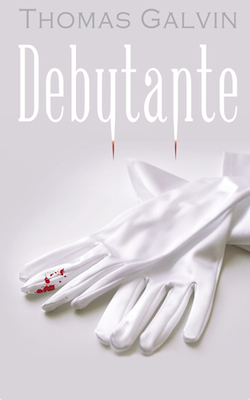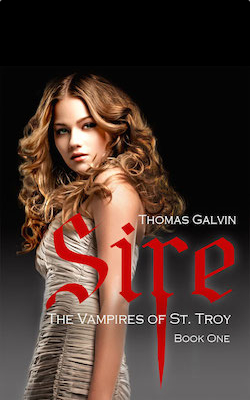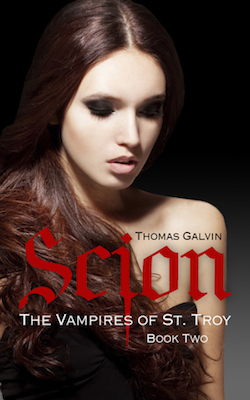The Janus Project is a Big Break Finalist!
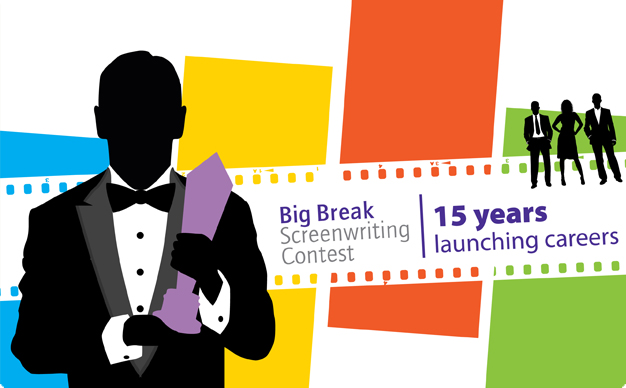
I just found out that The Janus Project is a Final Draft / Big Break Screenplay Competition semi-finalist! Out of 7,000 entrants, we are one of just 138 to advance to this stage. You can see our entry here, under Hour Pilots.
The Janus Project is available now on kindle and in paperback, and you can read the first chapter right here.
Why I'm going Amazon exclusive
For a while, I’ve been wrestling with the idea of Amazon exclusivity.
Amazon makes no secret that they want as many authors as possible to be available only on their devices, a program they call Kindle Select. The biggest incentive they offer used to be the ability to offer five free promo days in a three-month period, and a lot of authors have made their career by giving away the first book in their series to a few hundred thousand new fans.
They sweetened the deal with the Kindle Lending Library. The Lending Library lets people who own a Kindle device to borrow a new book every month, and read it for free. The author, though, still gets paid, out of a fund created by Amazon.
Recently, they introduced Kindle Countdown Deals, a way for authors to temporarily put a book on sale and have it automatically, gradually increase in price.
The latest benefit is Kindle Unlimited. Unlimited costs $9.99 a month, and gives the reader access to an all-you-can-eat buffet. Basically, it’s Netflix for books. Like the Lending Library, authors still get paid whenever someone reads past the ten percent mark (basically, they get through the free preview), and like the Lending Library, the only way to get your book in is to be Amazon exclusive.
There are a lot of perks to being Amazon exclusive. I’ve resisted, because I’ve wanted my books available to as many people as possible. Recently, though, I decided to take the plunge. Starting today, and until at least the end of the year, my eBooks will be available only through Amazon (but the paperbacks will still be available everywhere).
Why?
Exposure
This is the big reason. Between free promos, Countdown Deals, the Lending Library, and now Unlimited, there are a ton of ways to get noticed on Amazon. And just as importantly, my books are on the shelf next to a bunch of other authors’ who are using these tools to make their books more affordable and more attractive. Being in the Kindle Select program isn’t even about gaining an advantage anymore; it’s about evening the playing field.
The vast majority of my sales come from Amazon anyway
Sure, I might gain exposure on Amazon, but I’m also losing all of the sales I’d have coming from Apple, Barnes & Noble, Kobo, Smashwords, and all of the other eBook outlets, right?
Kind of. Almost all of my sales come from Amazon already, so I might be giving up five or ten percent by going Amazon exclusive. My bet is that the perks of Kindle Select more than make up for that loss. Hugh Howey, author of Wool, has been experimenting with this for a couple of months, and he’s found that the sales jump on Amazon easily overcomes the loss of other outlets.
Still, I want as many people to be able to read my stories as possible. Turns out, there’s an answer for that.
Kindle apps everywhere
If you have a Mac, a PC, an iPhone, an Android phone, a tablet, or even a Nook HD, you can download a Kindle app and read your books right on your device. And, unlike the Nook, this app actually works on Mac.
Also, my books are sold DRM-free, which means you can easily load them onto another eReader, including Nook. You can use Calibre to do your conversion and loading automatically.
Becoming Amazon exclusive gives me more exposure, and really doesn’t limit readers from getting ahold of my stories, so I’m going to experiment. I expect this to be win-win. And if not, I’m only committed for three months.
Thoughts on writing
No one that follows my blog - nor anyone that’s gotten spammed with a couple of hundred Thomas Posted a New Note messaged on FaceBook - will be surprised to hear that I write a lot.
Communication is kind of an interesting thing for me. I’m really not good at small talk; I don’t have the conversational skills, or sometimes the patience, to fill a whole lot of dead air, so if you want to talk with me, you’re probably going to have to do a lot of the lifting. But when I do have something to say, and when I can control the conversation, I excel.
That’s why I like giving speeches and writing; it lets me craft my message, to frame things just so, to set the tone and the temp. Everything works together when you’re writing. It’s usually much more elegant.
So, I write a lot, and I post a lot of what I write. But there’s a lot more that I don’t publish. I’ve got quite a few blog entries sitting around waiting for the right occasion, and a few ideas sitting around, waiting for the right motivation.
I also have a few longer pieces. I have one novel that’s essentially finished, and that I’m in the process of revising. I have notes and plot sketches - some fairly extensive, some fairly brief - for at least seven more. I really don’t know what I’m going to do with all of that, but at the very least its served as good finger exercise.
I’ve tried following the suggestions of various professional writers, tried to mimic the process that they say they use when they write, but I’ve learned that my brain just doesn’t work that way. When I write, even when I’m writing something that will stretch across two hundred pages or more, I do a lot of daydreaming, and have a lot of plot points and arcs in my head, and I’ll write myself little notes as inspiration strikes me, but sitting down and actually hammering out a complete outline is just about impossible for me.
I’ve recently changed the way I write my long-form fiction. I generally like to use the third person when I write, because there’s usually not one single character that sees everything I want my readers to know. The problem with that is that all of the sections, and therefore all of my characters, end up having the same voice - mine. Here’s Thomas describing how Sarah feels about her boyfriend. Here’s Thomas describing how Michael prepares to meet his enemy. And so on.
While first-person writing is excellent for developing a character’ voice, and also excellent for pulling the reader into the story, it’s just too limited for what I want to do. So what I’ve been doing - and this is sort of an experiment, so I’m not sure how well it’s going to work - is writing a draft from multiple first person perspectives. Each section, or chapter, is from a particular character’s point of view, which gives the reader access to their voice, their thoughts, their emotions, et cetera. But the next section might be from a totally different character’s point of view. Then, when I revise it, I’ll re-write all of those sections as third person narratives, but keep all of the internal dialog and such. The technical term for that is deep third person. It might end up sucking, but so far, I like what I’ve seen.
Joss Whedon, who does character-driven fiction better than pretty much anybody, once said (something along the lines of) “the key to writing good fiction is to hate your characters.” Drama arises from conflict. There won’t be any conflict if you’re too nice to your characters. So, if you want to write good stories, figure out worst thing you can do to your heroes, and then do it.
It can be hard to view your own writing objectively. There have been times when I’ve been sitting at the keyboard, staring at the words on the screen, and calling myself the worst hack on the planet. A few days later, though, I’ll go back and be pleasantly surprised by how those words turned out. There have been other times when I thought I was writing gold, but later realized that I was too tired, too drunk, or both, to have been at the computer at that moment, and should have just gone to bed.
Taking a few days, or even a few weeks, away from your work is essential. When you step away from your work, when you forget what you’ve written and why, you can look at it more objectively, like you’re reading it for the first time. When you’re looking at something you wrote a long time ago, and it makes you gasp, or want to weep, or pump your fist in the air, you can be pretty sure that what you’ve put down is worth reading.
You can also learn a lot about yourself by the things you write. Your sense of humor, your romantic streak, your hopes and dreams and fears, all have a way of coming out on the page. There have been a couple of times when I’ve looked back at some of the things I’ve written and said “Damn, that was cool,” followed almost immediately by “you know what? I think I need help.”
 TM
TM
